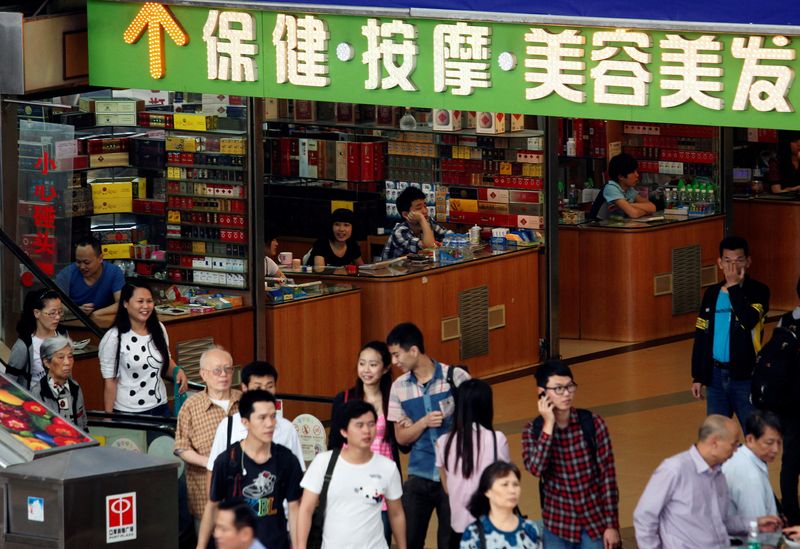
BEIJING (Reuters) – Millions of government employees across China received surprise pay rises this week, people affected by the move said, as Beijing looks to boost spending to support the slowing economy.
On an aggregate basis, the immediate payment would be a one-time payment to the economy of between about $12 billion and about $20 billion if all 48 million people are counted as public sector workers and collected under the terms explained to Reuters.
The last time China publicly announced a nationwide wage increase for civil servants was in 2015, when the government raised the wages of local officials by more than 30% as part of anti-corruption efforts and raising consumers' purchasing power.
The State Council Information Office, which speaks for the Chinese government, did not immediately respond to a request for comment.
This time, monthly wages for government employees were increased by an average of about 500 yuan ($68.50), according to people contacted by Reuters or who posted on social media. Some junior government employees reported monthly raises approaching 300 yuan ($41).
In many cases, the pay increases for officials and public sector workers were retroactive to July and were delivered in a lump sum resembling a bonus, people familiar with the matter said.
“Beijing’s strategy appears to encourage consumption by people who are more willing to spend,” said Xu Tianxin, chief economist at the Economist Intelligence Unit.
“So far we have seen cash distributions to poorer residents and wage increases in the public sector. Low-income groups tend to spend a higher share of their income, while civil servants are more likely to spend than employees of private companies due to their higher levels of social security benefits.” “
Bloomberg was first to report on the widespread pay increases, which affected teachers, police and civil servants working across China.
Beijing did not announce or detail this step. It was not immediately clear how the increase would be funded or the total cost.
Chinese leaders agreed last month to run a higher budget deficit equivalent to 4% of GDP this year, Reuters reported.
This would support efforts to achieve the economic growth target of around 5% for 2025 despite the impact of the protracted real estate crisis, falling prices and the possibility of higher tariffs on exports to the United States.
Government employees began posting on social media about the pay increases on either side of the New Year holiday.
“It's good for everyone if we can get out of the downturn,” one person posted on Weibo (NASDAQ:) from Jiangsu.
Others were critical. “How can consumption be stimulated by targeting a small group of civil servants?” said one Hubei-based Weibo user.
A record number of young Chinese, 3.4 million, took the civil service exam last year, lured by job security at a time when the private sector is under pressure.
The number of civil service applicants has tripled since 2014, although some local governments have struggled to pay wages, cut compensation, and in some cases cut jobs.

One worker, who requested to remain anonymous, told Reuters that a group of workers in the city of Beijing were informed on Thursday that they would receive a wage increase of at least 500 yuan per month, without further details.
The good news prompted the team to head to a restaurant to celebrate, the person told Reuters. “This should be beneficial to boost consumption,” she said.







